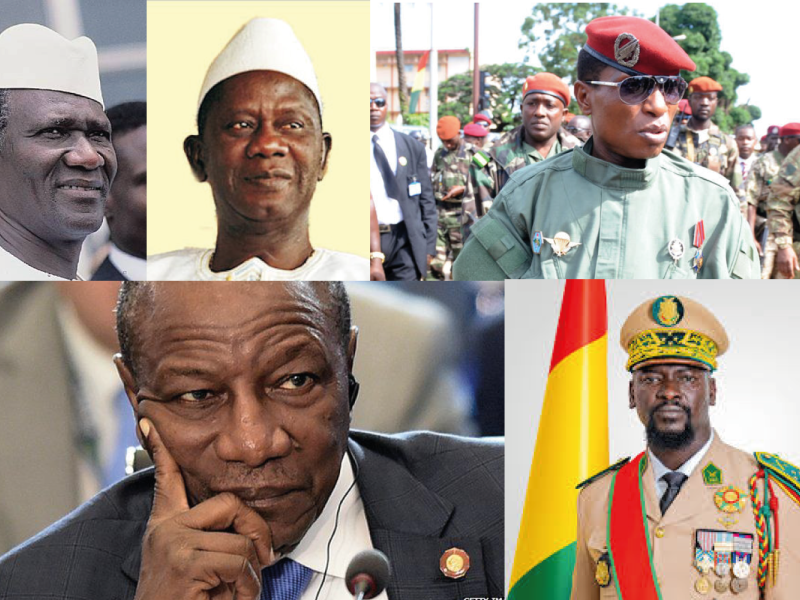Guinea's political history paints a deeply troubling narrative where intellectuals, far from being neutral observers, have become the primary architects of authoritarian systems. This complex trajectory reveals how knowledge and intellectual influence can be diverted from their original mission to become instruments of power legitimization.
Since its independence, Guinea has experienced a succession of regimes marked by increasing power concentration, systematic erosion of democratic institutions, and near-permanent political repression. In this destructive process, intellectuals have played a central and paradoxical role: not as critical counter-powers, but as active co-constructors of authoritarian dynamics.
Each political period has seen the emergence of carefully orchestrated intellectual movements designed to legitimize and perpetuate existing regimes. These movements are not simply spontaneous manifestations but calculated strategies where intellectual elites use their cultural capital to produce legitimizing narratives, create theoretical justifications for regime changes, mobilize public opinion, and neutralize potential criticism.
The phenomenon of "Coudeism" under Lansana Conté perfectly illustrates this perverse dynamic. Intellectuals actively promoted the idea of a presidency for life, transforming a modest president into an autocrat. They provided the ideological veneer necessary to justify this antidemocratic slide, using sophisticated arguments to defend the indefensible.
Similarly, during Moussa Dadis Camara's coup d'état, the "Dadis or Death" movement mobilized remarkable intellectual support. These thinkers presented the military takeover not as a constitutional rupture but as a national necessity, a salvific intervention. Their elaborate rhetoric transformed a violent event into a supposedly legitimate act of political refoundation.
With Alpha Condé, the "Woalou Akha Akha Waliragnon" movement pushed this logic of manipulation even further. A sophisticated intellectual campaign was orchestrated to modify the constitution and allow a third term, defying all democratic principles. The same academics, jurists, and political analysts who should have defended the rule of law became zealous promoters of authoritarian drift.
More recently, the "Doumbouya Kawa" movement perpetuates this tradition. After the military coup, intellectuals quickly mobilized to legitimize the new governance, transforming an institutional rupture into a narrative of national renewal.
This ease of rallying reveals a deep dynamic of compromise. Guinean intellectuals are motivated by immediate personal interests: obtaining administrative positions, receiving funding, gaining social recognition. They thus sacrifice their original critical function on the altar of opportunism.
The phenomenon of "political transhumance" has become systemic. The same intellectuals who yesterday criticized a regime will tomorrow be its most fervent defenders, as soon as a personal opportunity presents itself. This opportunistic mobility completely discredits their social and intellectual function.
The consequences of this attitude are dramatic and systemic. Not only do these practices weaken democratic institutions, but they legitimize authoritarian regimes, erode intellectual credibility, and perpetuate infernal cycles of autocratic power.
This betrayal of the intellectual function is all the more serious because these elites possess the analytical tools to understand the mechanisms of domination. They deliberately choose to use them to consolidate power rather than criticize it.
The historical responsibility of these intellectuals is immense. By betraying their critical mission, they become active accomplices of authoritarianism, contributing to maintaining systems that oppress the Guinean population.
Escaping this spiral would require radical self-criticism. Intellectuals must rediscover their original function: being genuine counter-powers, critical analysts, guardians of democratic ethics.
Guinea desperately needs intellectuals who build bridges, not walls. Thinkers who systematically challenge power, who embody intellectual integrity, and who place national interest above personal interests.
The country's political transformation requires reconstructing a truly independent intelligentsia, courageous and deeply committed to promoting democratic values. This involves renouncing the immediate benefits of power to embrace a long-term vision of national development.
This mutation requires a collective ethical awakening. Guinean intellectuals must relearn to be critical mirrors of society, capable of denouncing abuses regardless of the regime in power, without yielding to the sirens of compromise.
Guinea's democratic future depends on this ability to restore intellectual integrity. An intellectual who sells out is a dead intellectual. Only free, courageous, and uncompromising thought can contribute to the emergence of a true rule of law.












